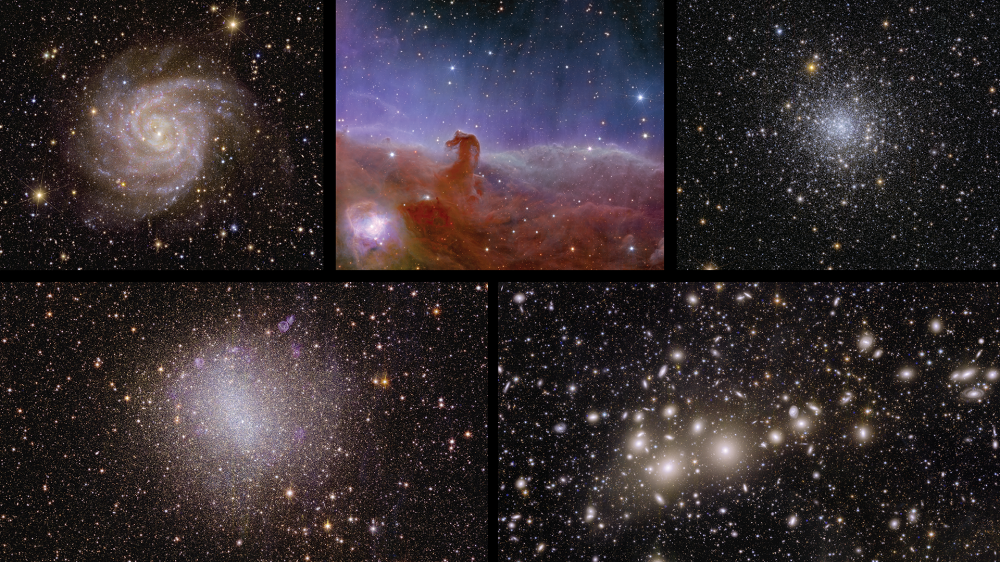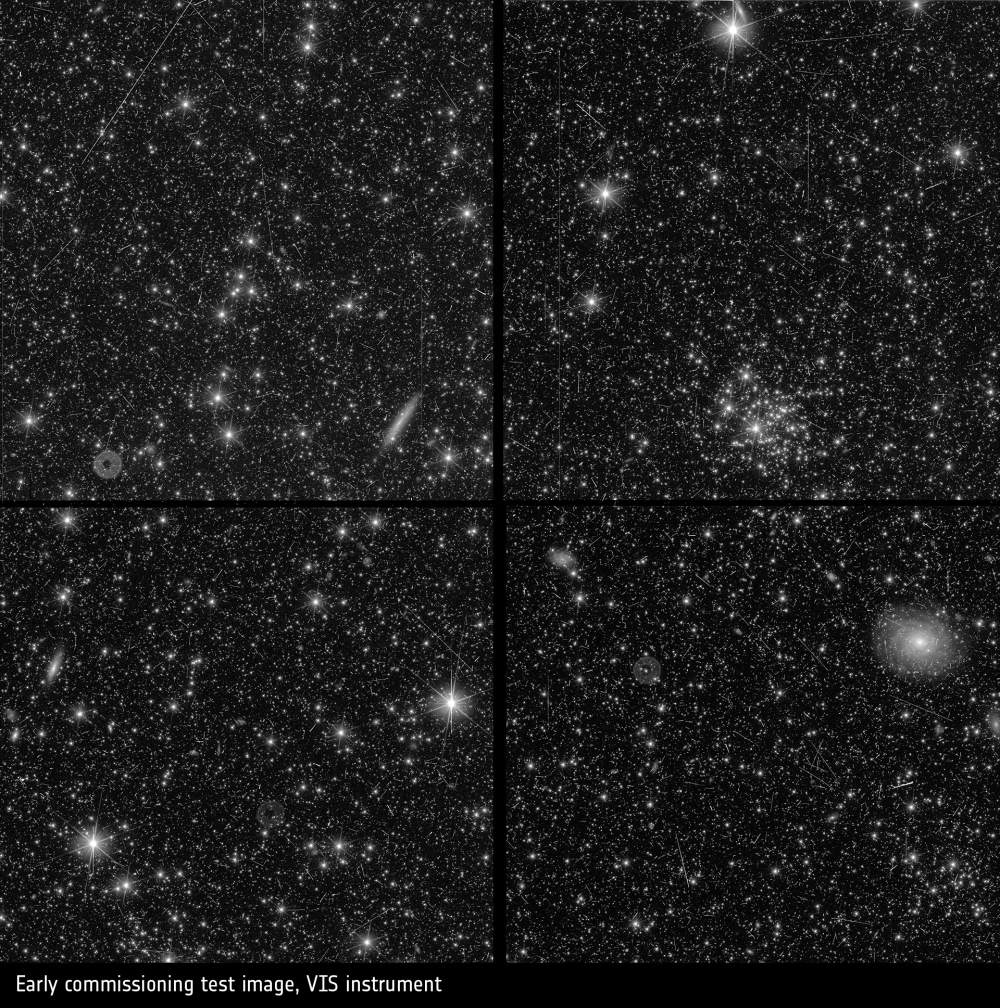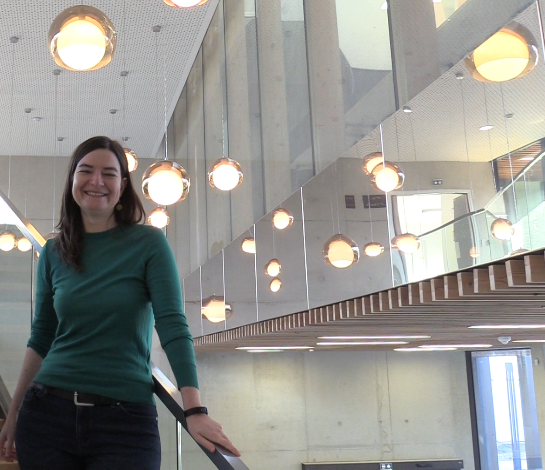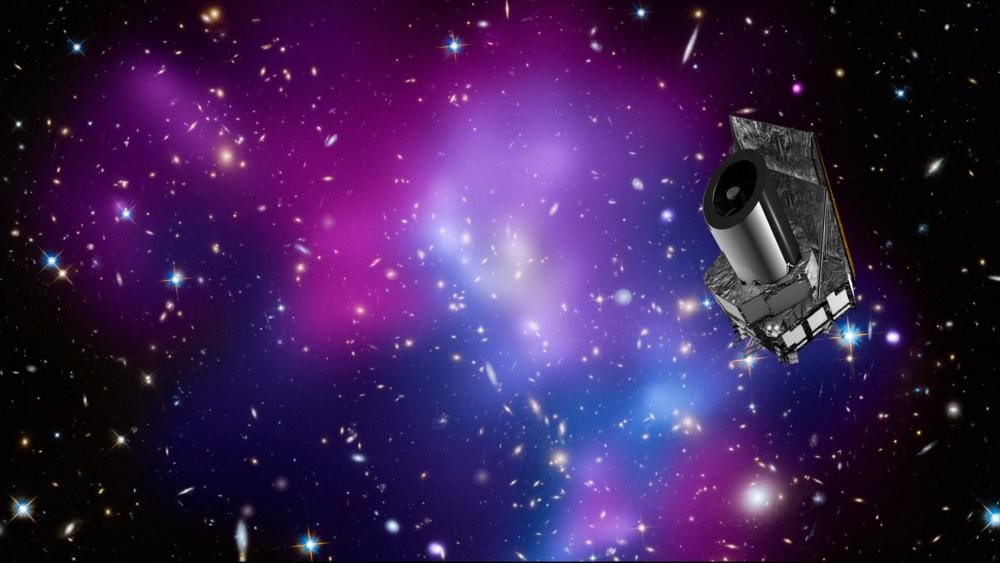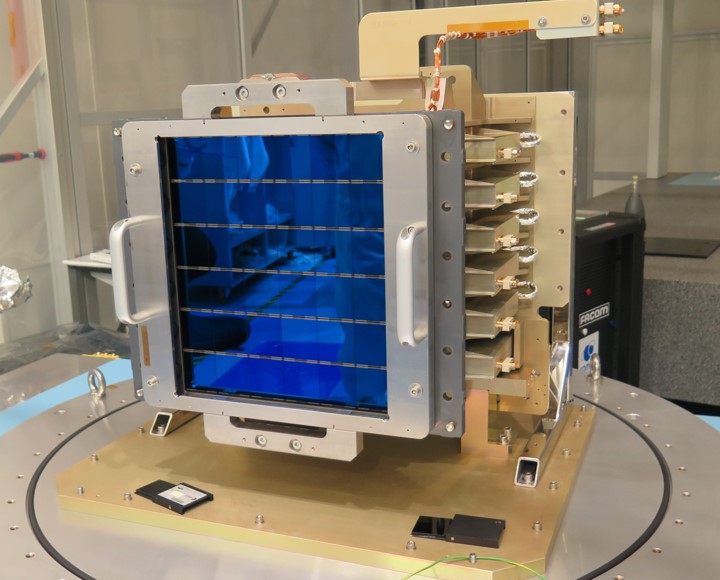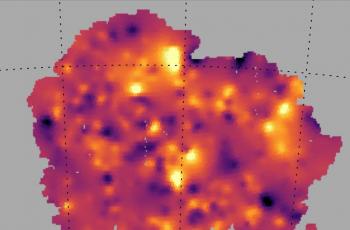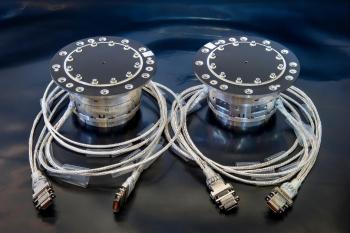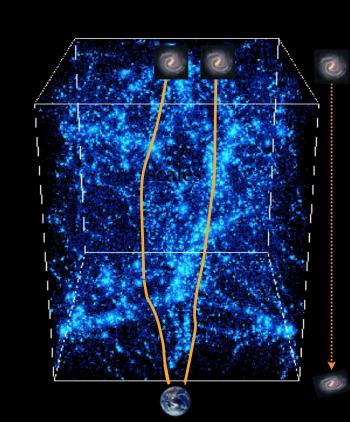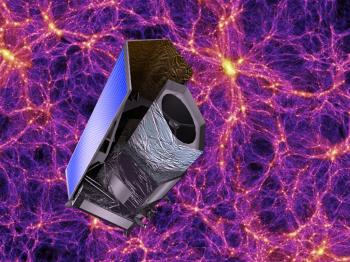Nov 07, 2023
This series of five images demonstrates the satellite's exceptional performance for its cosmological mission!
To reveal the influence of the dark components of the Universe, over the next six years Euclid will be observing the shapes, distances and movements of billions of galaxies.
Jul 31, 2023
Euclid's two instruments have captured their first test images. These fascinating results indicate that the space telescope will achieve the scientific objectives for which it was designed, and perhaps even more.
The Euclid satellite, launched from Cape Canaveral on July 1st, is traveling to reach its orbit at the second Lagrange point, which it should reach in early August.
Jun 01, 2021
Valeria Pettorino was awarded with the 2020 MCAA (Marie Curie Alumni Award) for her outstanding career (CEA/IRFU, Saclay) for her work in the Euclid collaboration and her involvement in the scientific community through various activities such as mentoring, event organisation, communication and more recently science diplomacy.
Feb 13, 2020
To measure cosmological parameters, the Euclid space telescope will use two main probes: gravitational lensing (Weak Gravitational Lensing) and galaxy distribution (Galaxy Clustering).
May 22, 2018
New statistical methods reveal the finest details of the Universe
A team led by University College London (UCL), in collaboration with the Astrophysics Department of CEA-Irfu, has significantly improved the analysis of dark matter maps in the Universe with new methods of data analysis.
Nov 28, 2017
The Near IR Spectrometer Photometer (NISP) is an infrared spectro-photometer that will equip the Euclid Space Telescope (launch planned for 2021) to better understand dark matter and dark energy.
Jul 28, 2015
Cosmology with cosmic shear observations
In a review article in "Reports on Progress in Physics", Martin Kilbinger of Astrophysics Department - AIM Laboratory at CEA-IRFU presents a comprehensive assessment of the results obtained from observations of the cosmic shear in the last 15 years.
Dec 15, 2014
The next European cosmology mission starts construction
The space mission EUCLID, intended to map the universe in order to understand the influence of dark matter and dark energy, just passed the implementation phase.
